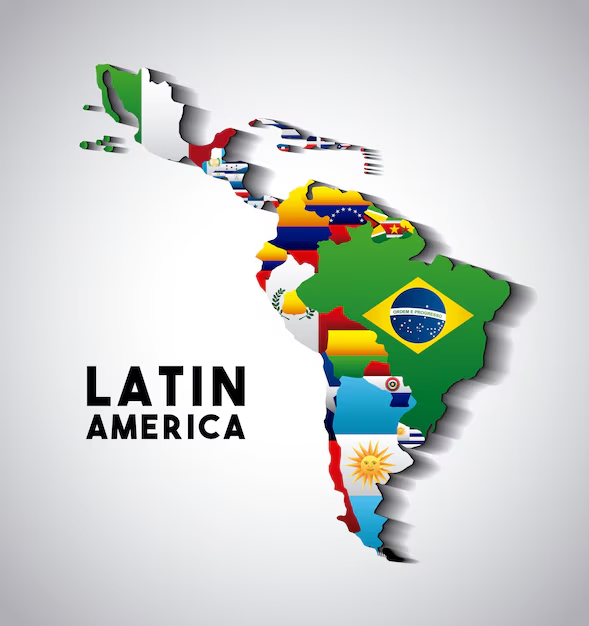Health Diplomacy in the Americas: Forging a Continent-Wide Response to Public Health Crises
The interconnectedness of the 21st century underscores the urgent need for international collaboration, particularly in confronting global health challenges. North and South America, with their shared geography, intertwined economies, and frequent cross-border interactions, occupy a pivotal position in this crucial arena of health diplomacy. This article delves into the complexities of international relations and cooperation within the Americas, focusing on effective strategies for responding to pandemics and other public health threats. By fostering understanding and promoting collaborative action, we can build a healthier and more resilient future for our continent.
The Indispensable Role of Health Diplomacy
Health diplomacy, the strategic intersection of health and foreign policy, is vital for navigating the complexities of global health security. It emphasizes cooperation, mutual goodwill, and concerted action to address transnational health challenges. Recognizing that health threats disregard national borders, health diplomacy champions joint efforts to mitigate their impact and protect populations across the Americas.
Confronting Pandemics and Public Health Threats
The COVID-19 pandemic served as a stark reminder of the devastating consequences of unchecked infectious disease outbreaks. Effective pandemic preparedness and response require seamless information sharing, coordinated strategies, and equitable access to essential resources like vaccines and treatments. This necessitates a high degree of international cooperation and collaboration between nations.
The Pivotal Role of International Organizations
International organizations such as the World Health Organization (WHO), the Pan American Health Organization (PAHO), and the Centers for Disease Control and Prevention (CDC) are indispensable partners in coordinating responses to public health emergencies. Their expertise in technical assistance, knowledge sharing, and resource mobilization is critical for strengthening national capacities and fostering regional collaboration.
Strengthening Cross-Border Collaboration
Building robust surveillance systems, establishing early warning mechanisms, and developing joint emergency response plans are essential components of effective cross-border cooperation. Sharing resources, expertise, and best practices among North and South American nations allows for a more efficient and effective response to emerging public health threats, minimizing their impact across the region.
Leveraging Regional Health Initiatives
Collaborative frameworks like the North American Plan for Animal and Pandemic Influenza (NAPAPI) provide crucial blueprints for multi-national cooperation. These initiatives focus on preparedness, response, and recovery from pandemics, establishing a common ground for action and resource allocation.
Vaccine Diplomacy: Ensuring Equitable Access
Equitable vaccine access and distribution are paramount in global health security. North and South American countries must work in concert to address disparities in vaccine availability, prioritizing vulnerable populations and ensuring that all communities have access to life-saving immunizations.
Knowledge Exchange: Sharing Best Practices
Open sharing of successful strategies, lessons learned, and challenges encountered is crucial for continuous improvement. By learning from each other's experiences, countries can refine their approaches to public health, developing more comprehensive and effective strategies to mitigate current and future threats.
Investing in Resilient Health Systems
Robust and resilient health systems are the cornerstone of effective public health. Collaborative investments in infrastructure, resource allocation, and knowledge exchange are essential for strengthening healthcare capacities across the Americas and building a more secure future.
Addressing Health Inequalities: Leaving No One Behind
Health diplomacy must actively address existing health inequalities, recognizing that marginalized and vulnerable populations are disproportionately affected by public health crises. By prioritizing equitable access to healthcare and resources, we can ensure that everyone benefits from advancements in global health security.
Disaster Preparedness and Response: A Collaborative Approach
Joint exercises, training programs, and consistent knowledge sharing enhance the preparedness and responsiveness of nations to public health emergencies. These collaborative efforts build capacity and strengthen collective capabilities in responding to crises effectively.
The Power of Research and Innovation
Investing in collaborative research efforts fuels innovation in disease prevention, treatment, and preparedness. Joint research initiatives between North and South American countries can accelerate advancements in understanding disease mechanisms and developing effective countermeasures.
Engaging Civil Society and the Private Sector
The active participation of civil society organizations and the private sector is essential for a holistic approach to health diplomacy. Their diverse perspectives, resources, and expertise enrich strategies and contribute to more effective outcomes.
Harnessing the Power of Technology
Technology plays a vital role in enhancing surveillance, information sharing, and access to healthcare. Leveraging telemedicine, real-time data analysis, and other technological advancements can significantly improve responsiveness to public health threats.
Building Trust and Fostering Solidarity
Trust and mutual support are the bedrock of successful health diplomacy. Open communication, transparency, and shared commitment to regional health security are essential for building strong relationships and overcoming challenges collaboratively.
Individual Empowerment and Advocacy
Each individual has a role to play in strengthening health diplomacy. Staying informed, advocating for equitable access to healthcare, and supporting collaborative initiatives contribute to a healthier and more unified Americas.
Conclusion: A Shared Responsibility for a Healthier Future
Addressing contemporary challenges in international relations and cooperation within the Americas requires a united front, built on shared responsibility and unwavering collaboration. By embracing the principles of health diplomacy, we can effectively respond to pandemics and other public health threats, build resilient health systems, and foster equitable access to healthcare for all. Let us work together to cultivate a healthier, more unified, and more resilient future for the Americas.
Questions for Reflection:
- What innovative strategies could enhance cross-border collaboration in responding to public health threats in the Americas?
- How can individuals actively contribute to promoting health diplomacy and unity within the Americas?
- What are some successful examples of health diplomacy initiatives in the Americas that could serve as models for future collaboration?
- What specific steps should be taken to address persistent health inequalities across the Americas, ensuring equitable access to healthcare for all?
Let's work together to create a healthier and more united future for the Americas!




No comments yet. Be the first to share your thoughts!